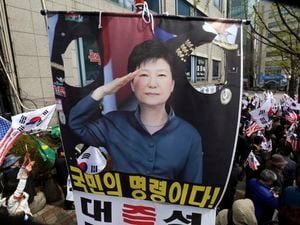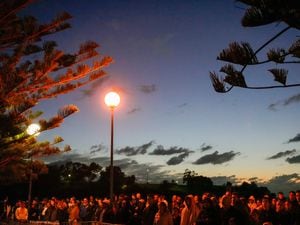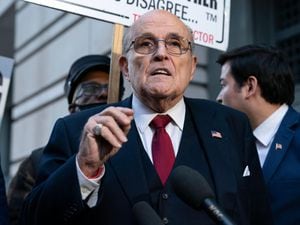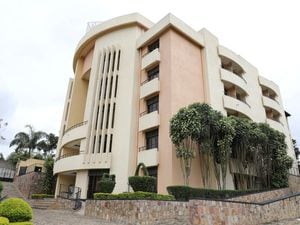Former South Korean leader Park jailed for 24 years over corruption
Park argued she was a victim of ‘political revenge’.

South Korea’s former president Park Geun-hye has been jailed for 24 years over a corruption scandal.
Park was earlier found guilty at Seoul Central District Court of bribery, abuse of power, extortion and other charges.
Park has been held at a detention centre near Seoul since her arrest in March 2017, but she refused to attend Friday’s court session, citing sickness.
The main charge was that she colluded with a long-time confidante to take tens of millions of dollars from companies in bribes and extortion.

The conviction, which Park can appeal, is the latest hit in a dramatic fall for South Korea’s first female president.
Once seen as the darling of South Korean conservatives, she was dubbed “Queen of Elections” by local media for her track record of leading her party to victory in tight races and still has a small group of fierce supporters who regularly stage rallies calling for her release.
“It’s inevitable that the defendant should be held strictly responsible for her crimes, if only to prevent the unfortunate event of (a president) abusing the power given by the people and causing chaos in state affairs,” Chief Judge Kim Se-yun said as the sentence was delivered.
Along with the prison sentence, Park was also fined 18 billion won (£12 million), Judge Kim said.
Both Park and the prosecutors have one week to appeal. Prosecutors in February demanded a 30-year prison term.
The Seoul court convicted Park of colluding with long-time confidante Choi Soon-sil to pressure 18 business groups to donate a total of 77.4 billion won (£52 million) for the launch of two foundations controlled by Choi.
The two women were also convicted of taking bribes from some of those companies, including more than 7 billion won (£4.6 million) alone from Samsung in return for government support for a smooth company leadership transition.
The court said Park colluded with senior government officials to blacklist artists critical of Park’s government to deny them state assistance programmes. Park was also convicted of passing on presidential documents with sensitive information to Choi via one of her presidential aides.
The scandal has already led to the arrests, indictments and convictions of dozens of high-profile government officials and business leaders. Choi is serving a 20-year prison term; Samsung executive Lee Jae-yong was initially sentenced to five years in prison before his sentence was suspended on appeal; and Lotte chairman Shin Dong-bin was given two-and-a-half years in prison.

“Long live President Park Geun-hye! Long live the Republic of Korea!” protester Choi Hyung-suk shouted into a microphone, referring to South Korea by its formal name.
Park’s conservative supporters – most of them middle aged and elderly – have been passionately rallying near the court and other parts of the city over the past year, although their gatherings have been much smaller than the earlier ones calling for Park to be ousted.
The protests show how deeply South Koreans are split along ideological and generational lines, the result of decades-long tension with rival North Korea and the lingering fallout from the conservative military dictatorships that ran the country until the late 1980s.
Park is the daughter of a deeply divisive dictator, Park Chung-hee, who is revered by supporters as a hero who spearheaded South Korea’s rapid economic rise in the 1960-70s. But he is also remembered for imprisoning and torturing dissidents.





